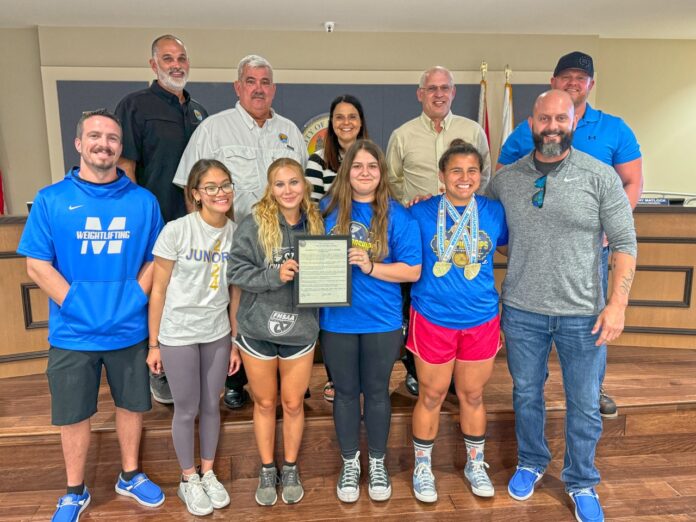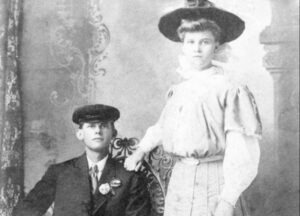
A light agenda for the Marathon City Council’s April session saw a quiet close to a hotly-debated hotel and motel ordinance, as well as renewed debate over the site for the city’s upcoming deep wastewater injection well.
Three unanimously-approved resolutions, authorizing north of $3 million in payments to local firm Weiler Engineering as the city prepares for installation of the well, drew a group of public commenters opposed to its installation at the city’s Area 6 treatment plant on Coco Plum’s Avenue I.
Five commenters cited a prior feasibility study that identified land on Crawl Key currently owned by the Florida Keys Aqueduct Authority (FKAA) as an alternate site, urging the council to further workshop the installation site, pivot away from the Area 6 installation altogether, and consider effluent re-use as alternatives to the single deep well.
“Please do not ignore the feasibility study that the city received last year indicating Crawl Key is the best location,” said Cheryl Miller. “The Crawl Key site is large enough to allow for future effluent re-use, but the Area 6 wastewater treatment plant is not.”
City Manager George Garrett said that while he would continue discussions with FKAA and that changes in the installation site could be made relatively easily within the next few months, “until we have a firm agreement in hand and I can put that in front of (the council), we have nothing. We own Area 6.”
Garrett and City Attorney Steve Williams reminded residents and the council of a five-year time constraint dictated by Marathon’s previous settlement with Friends of the Lower Keys, which mandated installation of the deep well. Williams said penalties for failing to meet the timeline could total $1,000 per day.
“We can ask to negotiate with (FKAA), but at the same time, we had better be doing our other work concurrently and keep it moving on our side,” Williams said. “If we can get over there (Crawl Key), wonderful. … (But) I would, at all costs, suggest that we move urgently.”
Councilman Kenny Matlock pushed back against concern that the new installation would cause additional traffic, odor, noise and environmental concerns, arguing that once completed, the required pump equipment would effectively equate to “an elevated shed.”
“You’re not going to know it’s there once it’s in,” he said. “I’ve heard a couple people telling me they’re concerned about their canal being dirtier, but a lot of people fought because this is supposed to make it all cleaner.”
Twenty-eight nonprofits funded
Out of requests from 35 local organizations totaling more than $417,000, 28 will receive a share of Marathon’s $150,000 in nonprofit grant funding for 2024, after a unanimous vote from the council to approve a bulk list of awards.
That list, generated by city staff to distribute the funds proportionally based on council members’ scoring of organizations’ applications, saw top awards between $12,800 and $13,400 awarded to Grace Jones Community Center, the Marathon Recreation Center and the Hammock House. The three organizations were also the top-awarded nonprofits in 2023, when the city grants were reinstated.
Funded nonprofits received an average grant of $5,357, with the smallest amount of $1,375 going to Habitat for Humanity of the Middle Keys.
Nonprofits not selected for grant funding in 2024 include the Conch Republic Marine Army, United Way of Collier and the Keys, I.CARE Corporation, MarineLab, Leadership Monroe County, Payton’s Promise Sanctuary and the Florida Keys Concert Association.
Hotel/motel ordinance goes unchanged
Heavily scrutinized by the public at multiple earlier meetings, the city’s hotel/motel redevelopment ordinance (2023-15) passed unanimously with no changes since its first approval in March. Along with increased provisions for affordable housing, the new ordinance continues to restrict development of single-bedroom hotel units as units of up to 1,500 square feet with three bedrooms in exchange for a reduction in the number of overall units. One-bedroom units may develop as two-bedroom units in exchange for a 10% reduction in the number of overall units, or as three-bedroom units in exchange for a 20% reduction.
Public commenters, while applauding the council for preserving the existing ordinance, continued to criticize prior drafts of the rule, which they said were presented as standard policy changes, but raised infrastructure, environmental and traffic concerns if one-bedroom units were allowed to develop as larger suites with up to six bedrooms.
Shortened timeline for lighting ordinance
Marathon homeowners will have one year to bring their homes’ lights into compliance with the city’s new lighting ordinance (2024-04), approved 4-1 at its second reading, with Matlock as the “no” vote. While the city previously enforced a commercial lighting ordinance and provisions for residents in turtle nesting areas, the new ordinance targets fixtures that could create light “trespass” over property lines.
Under the new rules, exterior lights must prevent glare that could affect passing motorists, bicyclists and others on roads and sidewalks. This can be accomplished using special bulbs, fixtures, or architectural features of a home such as porches and overhangs to “shield” light from traveling sideways onto other properties.
The council’s initial approval of the ordinance in March saw a three-year compliance timeline shortened to two years. But on Tuesday, councilman Luis Gonzalez and Mayor Robyn Still said residents had expressed concern with the “generous” two-year timeline, later suggesting the one-year horizon as a solution.
Matlock opposed the shortened timeline, arguing that the change would bring a significant unexpected expense to homeowners and that enforcement of the ordinance on a large proportion of non-complying homes would likely only come in response to resident complaints.
In other news:
- The council opened its meeting with a proclamation recognizing the Marathon High School girls weightlifting team. Sending six members of the team to the FHSAA State Championships in Lakeland in late February, the squad returned home with four state medals, including two first-place finishes in her weight class for sophomore Justice Lee Isom.
- With the approval of Resolution 2024-37, the city will construct an events tiki at Oceanfront Park. A $201,495 Tourist Development Council grant will fund the majority of the project, with a $50,000 contribution from city funds.
- Under ordinance 2024-05, approved unanimously at its second reading, property owners with a “principal structure” such as a single-family residence who construct accessory structures – such as carports or sheds – on a second lot contiguous or adjacent to this residence will be required to remove the structures if the two lots are divided into separate ownerships in the future. Pools may be constructed on contiguous lots sharing a property line, but not on adjacent properties across the street from one another.























